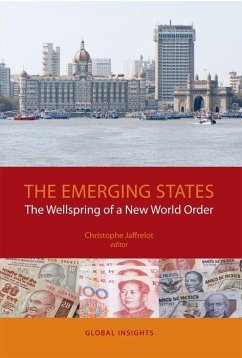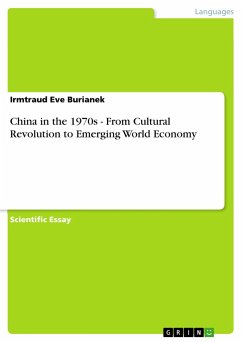Countries like India, Turkey, Brazil, Mexico, Indonesia and South Africa which were previously lumped under the general heading of "developing" are fast becoming key players on the international stage. This book describes "Emerging States" and how they are transforming international relations.
Hinweis: Dieser Artikel kann nur an eine deutsche Lieferadresse ausgeliefert werden.
Hinweis: Dieser Artikel kann nur an eine deutsche Lieferadresse ausgeliefert werden.







